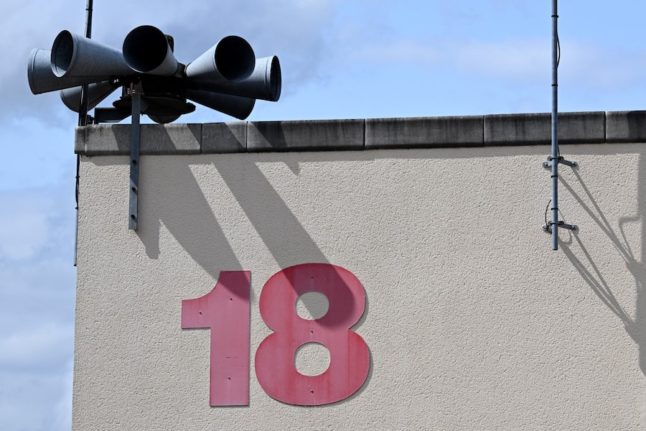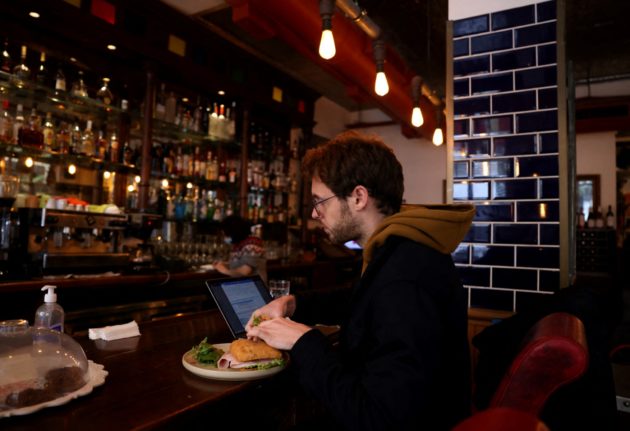There is no need to panic if you hear sirens go off sometime between 11:45am to 12:15pm in France on Thursday, May 2nd.
Normally, France tests its ‘population alert and information system’ (système d’alerte et d’information des populations or ‘SAIP’ in French) every first Wednesday of the month to ensure the system functions properly, but this year that date fell on a public holiday (May Day).
As a result, the sirens did not go off on Wednesday, and they were rescheduled for Thursday.
This is not the first time this has happened – the same procedure was used earlier this year when the November bank holiday (Toussaint, or All Saints Day) fell on a Wednesday.
When tested, the sirens go off for one minute and 41 seconds, and there are thousands across the country.
Why does France have these sirens?
The emergency alert system has been in place since the end of World War II. The goal is to make it possible to warn the entire population of an imminent or ongoing threat.
READ MORE: Explained: France’s emergency sirens and alert protocol
In case of a real emergency – such as the Lubrizol factory fire in September 2019 – the sirens will sound for much longer, in three spells of one-minute 41-seconds, broken by a five-second pause.
If you do hear the longer siren, indicating a genuine emergency, you are expected to be aware of likely dangers that could affect your area and take necessary precautions.
The sirens are usually not used for police or crime-related alerts – for example they do not sound in case of a shooting or stabbing in an urban area.



 Please whitelist us to continue reading.
Please whitelist us to continue reading.
Member comments